Mortgages
WHY USE A MORTGAGE ADVISER
We’re not restricted to any particular providers, and will act solely in your best interests. You can therefore be confident that the mortgage we recommend will be the best available for your circumstances.
Minimise the stress
Our advice is always centred on the needs of our clients. We know what our clients want because we’ve been clients ourselves. With a mortgage market as competitive as the UK’s, there are over 8,000 products available, it is as important as ever to seek advice from an expert.
With lenders becoming more innovative with their products, the market can be confusing to even the most financially aware.
Clear relevant communication from start to finish
We will keep you updated through all stages of your application from Agreement in Principle, valuation, offer and completion.
We will give you one point of contact from start to finish. MHW’s initial questionnaire is designed to capture the main relevant information needed. This will give us a quick answer on the first stage of any Mortgage Application.
All your financial planning in one place
MHW is a firm of Independent Mortgage and Financial Advisers so we can look at your entire circumstances and advise you about how to manage and protect your money. We don’t just look at your mortgage, we can look at all your financial requirements.
We have a team of Financial Planning experts in all fields for customers with more complex needs including Pensions, Investments, Personal and Business Protection, Inheritance Tax Planning.
Affordability Calculator
Traditional mortgage calculators found online are typically provided by an individual lender, meaning you only obtain a borrowing figure based on their own criteria.
This leaves you searching around multiple websites, inputting the same data over and over again.
At MHW we scour the open market for you, comparing multiple lenders criteria against your personal circumstances.
Our mortgage calculator is connected to over 40 providers, so you’re engaging with real lenders and will get an actual answer, completely free, on how much you can borrow within a minute with absolutely no credit checks.
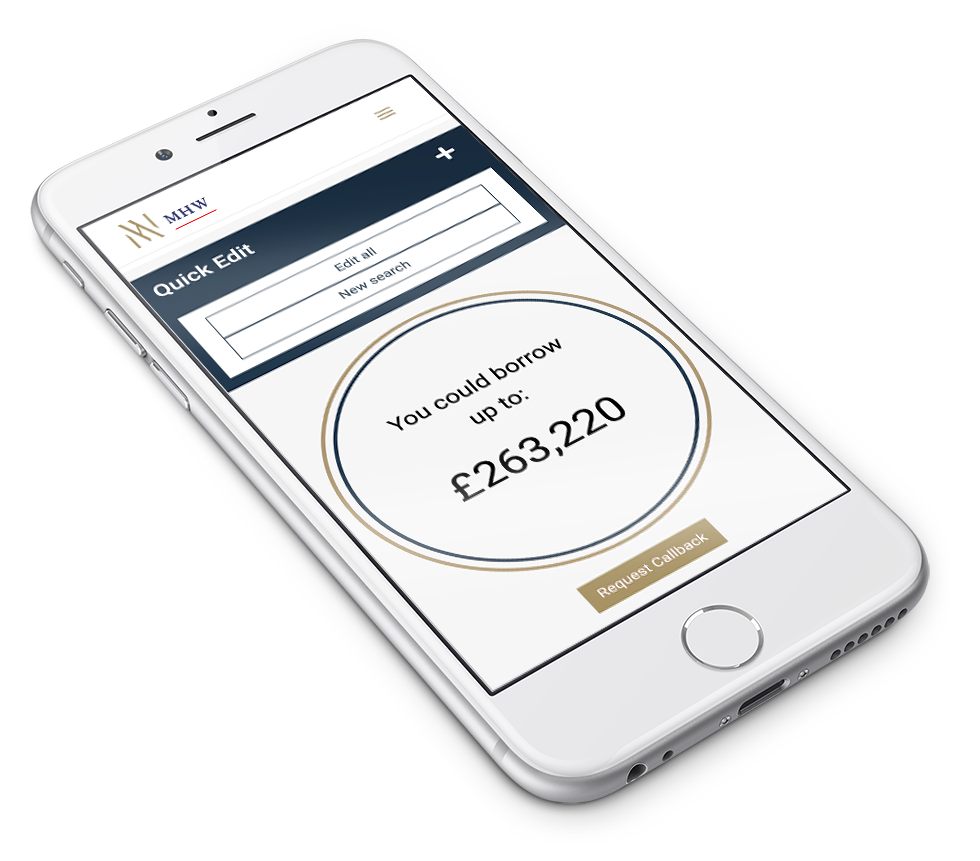
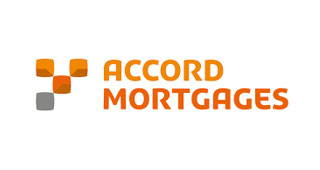












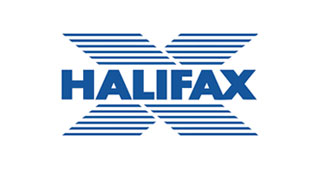





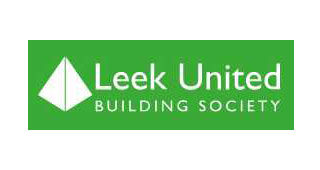







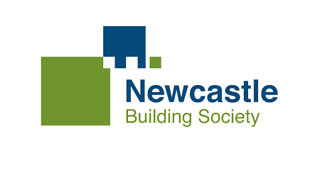




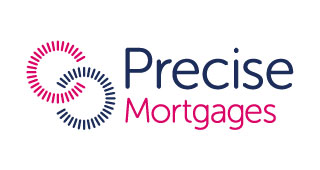





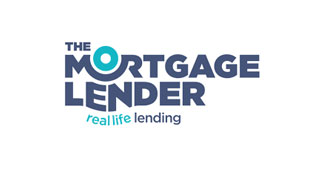





Help throughout the whole process
We can do as little or as much as you want to get you where you need to be.
As well as searching the whole market to find the most appropriate and competitive mortgage, we can help with other areas of home ownership.
Mortgages can be a stressful process. Our advisers can help not only with your financial needs, but liaise with your estate agent, recommend competitive home insurance and legal help, so that you get moving with your purchase or complete your re-mortgage in a stress free way.
We have exclusive relationships with specialist conveyancing firms, to help manage and prioritise your mortgage application and make sure you complete on the best terms possible.
Our advisers will sensitively guide you through the most effective and comprehensive ways to plan so you and your family have total peace of mind at all times.
We will make sure your life and health insurances are the most suitable and we can help you to make the right choices to pass on your assets in the most tax efficient way possible.
We can do as little or as much as you want to get you where you need to be.
As well as searching the whole market to find the most appropriate and competitive mortgage, we can help with other areas of home ownership.
Read more...
Mortgages can be a stressful process. Our advisers can help not only with your financial needs, but liaise with your estate agent, recommend competitive home insurance and legal help, so that you get moving with your purchase or complete your re-mortgage in a stress free way.
We have exclusive relationships with specialist conveyancing firms, to help manage and prioritise your mortgage application and make sure you complete on the best terms possible.
Our advisers will sensitively guide you through the most effective and comprehensive ways to plan so you and your family have total peace of mind at all times.
We will make sure your life and health insurances are the most suitable and we can help you to make the right choices to pass on your assets in the most tax efficient way possible.
From Conveyancing to Surveys, we’ve got you covered
Our expert services are available across England, Scotland and Wales where applicable.
Conveyancing
- Sale
- Purchase
- Sale and Purchase
Additional options include
- Shared ownership
- Expats
- Blood relatives
- Gifted Equity
- Help to Buy
Re-mortgage
- Re-mortgage
- Fixed Price Re-mortgage
Additional options include
- Shared ownership
- Buy-to-Let
- Expats
- Adult Occupancy
- Holiday Let
Buy- to-Let
- Purchase
Additional options include
- Gifted Deposit
- New Build
- Auction
- Blood Relatives
- Expats
- Adult Occupancy
- Holiday Let
Surveys
- Basic Valuation
- RICS Homebuyer Report – Level 2
- Building Survey – Level 3
If you are happy with the quote, you’re able to instruct the expert to act on your behalf.
The right mortgage for you
Our aim is to find you the mortgage that is most suitable to your needs, circumstances, and preferences. Buying or re-mortgaging a property can be a huge decision. It is essential that you receive the most appropriate advice from start to finish.
At MHW we are independent which means we’re not tied to a limited panel of lenders and have access to the ‘whole of the market’ to get you the most appropriate mortgage product for your circumstances. As well as having access to all the High Street Lenders, we also have access to Broker exclusives with the High Street Banks and Specialist Lenders that you cannot access directly.
We offer the following:
- New Purchases & Re-mortgages
- First Time Buyers
- Second-Charge Mortgages
- Buy-to-let (BTL) Mortgages
- Limited company BTL Mortgages
- Mortgages for Self-employed (minimum one year’s accounts)
- Adverse Credit Mortgages including CCJs, Defaults, Secured Missed Payments,
- Satisfied Bankruptcy Orders and IVAs (T&Cs apply)
- Help-to-Buy Mortgages
- Shared Ownership Mortgages
- Gifted Deposit and Family Assisted Mortgages
- Lifetime Mortgages
- Bridging Loans
Using an Adviser can make all the difference
Using our in-depth knowledge of current lender criteria allows us to match your specific circumstances with the most suitable lender.
You may have had a mortgage application declined in the past for various reasons. However, there are now a growing number of specialist lenders offering mortgage finance, meaning we have more options when it comes to helping those with more complicated borrowing scenarios. So, if you have been declined in the past it does not necessarily mean that we cannot obtain finance for you now.
Our aim is to find you the mortgage that is most suitable to your needs, circumstances, and preferences. Buying or re-mortgaging a property can be a huge decision. It is essential that you receive the most appropriate advice from start to finish.
Read more...
At MHW we are independent which means we’re not tied to a limited panel of lenders and have access to the ‘whole of the market’ to get you the most appropriate mortgage product for your circumstances. As well as having access to all the High Street Lenders, we also have access to Broker exclusives with the High Street Banks and Specialist Lenders that you cannot access directly.
We offer the following:
- New Purchases & Re-mortgages
- First Time Buyers
- Second-Charge Mortgages
- Buy-to-let (BTL) Mortgages
- Limited company BTL Mortgages
- Mortgages for Self-employed (minimum one year’s accounts)
- Adverse Credit Mortgages including CCJs,
- Defaults, Secured Missed Payments,
- Satisfied Bankruptcy Orders and IVAs (T&Cs apply)
- Help-to-Buy Mortgages
- Shared Ownership Mortgages
- Gifted Deposit and Family Assisted
- Mortgages
- Lifetime Mortgages
- Bridging Loans
Using an Adviser can make all the difference
Using our in-depth knowledge of current lender criteria allows us to match your specific circumstances with the most suitable lender.
You may have had a mortgage application declined in the past for various reasons. However, there are now a growing number of specialist lenders offering mortgage finance, meaning we have more options when it comes to helping those with more complicated borrowing scenarios. So, if you have been declined in the past it does not necessarily mean that we cannot obtain finance for you now.
Think carefully before securing other debts against your home. Your home may be repossessed if you do not keep up your repayments on your mortgage or any other debt secured on it. If you are thinking of consolidating existing borrowing you should be aware that you may be extending the terms of the debt and increasing the total amount you repay.
Mortgage types
Repayment Mortgage
This is a mortgage in which the capital borrowed is repaid gradually over the period of the loan. The capital is paid in monthly instalments together with an amount of interest. The amount of capital which is repaid gradually increases over the years whilst the amount of interest goes down. Provided you make all of your repayments up to the end of the mortgage term, you are guaranteed to clear the full amount borrowed. The majority of residential mortgages are on a repayment basis.
Interest Only Mortgage
Fixed Rates
Tracker Rates
Discount Rates
Offset Mortgages
Flexible Mortgages
Green Mortgages
Essentially, a green mortgage is meant to increase the appeal of owning a green property. On top of the savings you’ll make on your energy bills each month, the idea is that lenders give you a better interest rate when you take out a green mortgage on an energy-efficient property.
While you’d have been hard-pressed five years ago to find a single mainstream lender willing to give you preferential treatment on the basis of an energy performance certificate (EPC), there’s now a range of high-street lenders that claim to do just that via their own versions of a green mortgage.
Green mortgages generally fall into two categories
Those that reward you for living in an energy-efficient home. Here, if the property you’re buying or living in has an EPC rating of A to C, you’ll get a better interest rate on your mortgage. This type of green mortgage is available to homebuyers and, in some cases, Remortgages.
Those that reward you for carrying out ‘green’ home improvements. Green improvements could include replacing single-glazed windows, upgrading your heating system, or installing solar panels, for example. Typically, lenders will offer you a discounted interest rate on any money you borrow to upgrade your home’s energy efficiency.
Lenders are willing to offer incentives of this nature because they increasingly see energy-efficient properties – in this era of combating climate change – as less risky purchases and more likely to hold their value. Plus, if a homeowner is spending less on their energy bills each month, there’s less of a chance they’ll struggle to meet their mortgage repayments.
Our team of experts will help you get a personalised indication of how much you could borrow and compare mortgage rates to find out what the saving could be with a green mortgage.
Essentially, a green mortgage is meant to increase the appeal of owning a green property. On top of the savings you’ll make on your energy bills each month, the idea is that lenders give you a better interest rate when you take out a green mortgage on an energy-efficient property.
Read more...
While you’d have been hard-pressed five years ago to find a single mainstream lender willing to give you preferential treatment on the basis of an energy performance certificate (EPC), there’s now a range of high-street lenders that claim to do just that via their own versions of a green mortgage.
Green mortgages generally fall into two categories
Those that reward you for living in an energy-efficient home. Here, if the property you’re buying or living in has an EPC rating of A to C, you’ll get a better interest rate on your mortgage. This type of green mortgage is available to homebuyers and, in some cases, Remortgages.
Those that reward you for carrying out ‘green’ home improvements. Green improvements could include replacing single-glazed windows, upgrading your heating system, or installing solar panels, for example. Typically, lenders will offer you a discounted interest rate on any money you borrow to upgrade your home’s energy efficiency.
Lenders are willing to offer incentives of this nature because they increasingly see energy-efficient properties – in this era of combating climate change – as less risky purchases and more likely to hold their value. Plus, if a homeowner is spending less on their energy bills each month, there’s less of a chance they’ll struggle to meet their mortgage repayments.
Our team of experts will help you get a personalised indication of how much you could borrow and compare mortgage rates to find out what the saving could be with a green mortgage.
Click here to check if the property you are buying or selling has a current Energy Performance Certificate and when it expires.
You can obtain a quote for an Energy Performance Certificate and instruct an expert in a few simple steps clicking here.
Buy-to-let mortgages
A Buy-to-Let mortgage is a mortgage sold specifically to people who buy property as an investment, rather than as a place to live. If you plan to rent out a new property, most lenders will prefer you not to finance your purchase with a standard residential mortgage.
Buy-to-Let mortgages are a way for existing investors and new landlords to take their first steps into the rental property market.
Read more...
Here’s how Buy-to-Let mortgages work:
1. Put down your deposit
The minimum deposit for a Buy-to-Let mortgage is typically higher than a standard, residential mortgage – usually at least 25% of the property’s value (but this can vary between 20-40%).
2. Interest-only payments
Many borrowers take out an interest-only mortgage for their chosen property – so you’ll pay the interest each month, but not the full capital amount.
3. Pay back the full amount
At the end of the mortgage term, you’ll repay the capital debt – the full amount of the mortgage. Often, borrowers might save into an ISA to repay the capital, or may sell the investment property to pay off the debt.
Buy-to-Let Green Mortgages
Offering an energy-efficient property with top green credentials is becoming not just an added bonus but a necessity for many in the Buy-to-Let industry.
Growing numbers of lenders have begun offering green mortgages and these are becoming more mainstream. These products offer favourable rates or terms to borrowers with top EPC ratings.
Read more...
Energy performance certificates (EPCs) may once have been something prospective tenants – and property investors – merely glanced at, but they are now a crucial part of the buying and renting process.
The Government has proposed increasing EPC requirements on rental properties from 2025, which would mean rental homes with new tenancies would need to achieve a rating of C or higher. This would extend to all tenancies by 2028.
To add a further incentive to investors and landlords looking at energy-efficient properties, growing numbers of lenders have begun offering green mortgages and these are becoming more mainstream. These products offer favourable rates or terms to borrowers with top EPC ratings.
Click here to check if the property you are buying or selling has a current Energy Performance Certificate and when it expires.
You can obtain a quote for an Energy Performance Certificate and instruct an expert in a few simple steps clicking here.
Limited company BTL Mortgages
A Buy-to-Let mortgage for a limited company is a specialist type of mortgage for landlords who want to buy a property through a company.
These companies are specifically structured to buy, sell or let property and are known as a special purpose vehicle (SPV).
Read more...
Some investors decide to set up a company solely for owning properties because of the tax benefits on offer.
These companies are specifically structured to buy, sell or let property and are known as a special purpose vehicle (SPV).
Changes to income tax relief for residential landlords brought in from 2017 increased the number of landlords using a limited company to buy and own properties.
If you use a SPV to buy your property you will not be able to take out a standard residential or BTL mortgage and will instead need a limited company Buy-to-Let mortgage.
Limited company Buy-to-Let mortgages are not regulated by the Financial Conduct Authority (FCA) so borrowers don’t get the same protection offered by standard residential mortgages.
Lenders will want to make sure the rental income on the property more than covers the mortgage repayment, typically at a rate of 125%.
Underwriters will also examine the financial situation of any shareholders or directors of the company and require a minimum level of personal income to cover any void periods.
Many Buy-to-Let mortgages for limited companies are offered through specialist lenders, which are able to underwrite mortgages for business in a broad range of circumstances.
Specialist lenders are more likely to accept larger Buy-to-Let property portfolios owned through the limited company. High street lenders tend to cap the number of properties that a limited company can own at around three.
Finding the right Buy-to-Let deal is critical if you want to make the most of your financial venture and we’re very experienced in sourcing the most suitable mortgage product for less conventional situations.
Lifetime Mortgages
A lifetime mortgage is a form of equity release that allows homeowners to borrow money against the value of their home while retaining 100% ownership of the property. You can receive the money as a lump sum or in monthly instalments.
Read more...
Interest is charged on the amount you borrow. This can be repaid or added to the total loan amount.
When you die or enter long-term care, the house is sold and the proceeds used to repay the loan plus any accrued interest.
Most lifetime mortgages come with a no negative equity guarantee. This essentially guarantees that once your home is sold, you or your beneficiaries will not have to pay back more than the value of the home, even if this value is below the loan amount.
To be eligible for a lifetime mortgage, you must be:
- Over the age of 55
- Applying for a mortgage on your main residence only
There are two different types of lifetime mortgages.
1. Interest roll-up mortgage
Here, you get a lump sum or regular amounts and then get charged interest, which is added to the loan. You won’t have to pay back a penny until the end of the loan term, for example, when you die or move into long-term care.
Read more...
You should be aware that the amount you will need to ultimately repay will continue to rise as the interest “rolls up” and is added to the loan.
2. Retirement Interest Only Mortgage
With this type of lifetime mortgage, you get a lump sum and then you pay back the interest or even some of the loan on a monthly or ad hoc basis. This reduces or eliminates the impact of interest compounding.
Read more...
The remaining amount will be paid off when the property is sold at the end of the loan term.
Some providers might also allow you to pay off capital if you wish, though you might have to pay an early repayment charge.
Whichever way you choose to deal with interest, drawing down your money in smaller amounts over time as regular income rather than as one large lump sum can help keep your total interest from ballooning. That’s because you will only be charged interest on the amount you withdraw.
Getting independent, regulated expert advice is not only wise, it’s a requirement of the Financial Conduct Authority (FCA) to make sure your interests are protected.
Our specialist advisers take the time to thoroughly understand your circumstances and needs, ensuring that you’ve considered other borrowing options before making a recommendation to you.
And if a Lifetime Mortgage isn’t right for you, we’ll tell you.






















Our specialist advisers take the time to thoroughly understand your circumstances
Affordability
HOW MUCH CAN I BORROW FOR A MORTGAGE?
Your mortgage lender will look at your affordability and decide how much you can borrow. It’ll base this decision on:
- Your salary. Or a combination of your salaries if you’re applying for a joint mortgage
- Any additional income you have, like bonuses or tax credits
- The size of your deposit. You’ll usually need at least 5%-10% of the total loan value
- Any financial outgoings you have – bills, credit cards or insurance payments
- Your credit history. A good credit history of meeting repayments will give you access to better deals

Adverse credit
We understand unexpected life events and financial mistakes happen that could impact your credit history. If you’re looking for a lender with the expertise to make sensible lending decisions, don’t worry, we’ve already found them, look no further.
Read more...
If your credit score isn’t in top condition or if you’ve missed a few credit card payments, we believe this shouldn’t get in the way of the next chapter. If you’re looking for a mortgage lender that doesn’t just rely on automated systems, you’ve come to the right place.
We understand that not everyone has a perfect credit history or receives income, in the same way, each month. We understand that unexpected life events and financial mistakes happen.
We believe that not all people with a less than perfect credit history are still in financial difficulty. If you’re back on track with your finances and able to meet your mortgage repayments, we don’t believe past events should stop you from being considered for a mortgage.
The beauty of using a Mortgage Broker is that we’re looking for a reason to offer to help, rather than refuse it.
If you’re looking for a lender with the expertise to make sensible lending decisions, don’t worry, we’ve already found them, look no further.
Second-charge mortgages
A second mortgage, also known as a second-charge mortgage, is a secured loan which uses the borrower’s home as security.
Read more...
They are sometimes used to raise money if borrowers are unable or unwilling to remortgage, or to get an unsecured personal loan.
To get a second charge mortgage you have to already be a homeowner, but you don’t need to live in the property.
Taking out a second charge mortgage allows you to use any equity you have in your home as security against another loan, so that you basically have two mortgages.
However, if you fall into financial difficulties repaying either the first or second mortgage and your property is repossessed and sold to repay the debts, the first mortgage takes priority, with the second mortgage repaid using any remaining funds.
If you can’t keep up your first mortgage as it is, you should definitely avoid a second mortgage. If you fail to make your monthly repayments on either your first or second mortgage you would end up losing your home, so it’s not a decision to be taken lightly.
Family Assisted Mortgages
Family members can help by providing security in one or a combination of three different ways;
- The family can put their savings in a security account, which earns them interest too.
- The family can provide a charge over some of the value in their property, so there’s no need for them to use their savings.
- This involves the family placing their savings in an offset account at the start of the mortgage.
Read more...
The principle behind Family Assisted Mortgages is simple. Most young adults don’t have a lot of spare money. That means they will only have a small deposit to put down on a property, missing out on most of the better mortgage rates. At the same time, families may have savings and property that could be used as security for a borrower.
The Family Mortgage brings this wider family wealth into the mortgage calculation, helping to reduce the cost for the borrower without asking family members to hand it over as a gift.
Family members can help by providing security in one or a combination of three different ways;
1. The family can put their savings in a security account, which earns them interest too.
If a buyer can find the necessary deposit, from savings or perhaps a gift, the Family Assisted Mortgage allows a family member to provide security for the buyer’s mortgage by depositing savings in a Family Security Account.
This money acts as security for the mortgage and reduces the risk, so lenders can offer a lower rate of interest than might otherwise be the case. This reduces the monthly payments for the buyer while the family’s savings continue to earn interest.
If the house is sold and the property is in negative equity, there is a risk that the money in the security account may have to be used to make good any shortfall.
2. The family can provide a charge over some of the value in their property, so there’s no need for them to use their savings.
If a buyer has the necessary deposit, a family member can use the value in their property as security to support the Mortgage.
By providing this security the lender will lower the interest rate that the buyer might otherwise be able to get and so reduce their monthly payments. Offering security by placing a charge on the family’s property means that if the borrower’s house is sold for less than the mortgage value (i.e. there is negative equity), the family member is responsible for making up the shortfall up to the value of the charge.
3. This involves the family placing their savings in an offset account at the start of the mortgage.
This reduces the amount of the mortgage on which interest is charged. So instead of receiving interest on the savings (which is also subject to tax) the family are passing on a bigger benefit to the buyer by saving them interest on their mortgage.
The additional security family members provide will need to bring the total security the lender has up to a minimum percentage of the property value. Money placed in the offset account acts as security so if the house is sold for less than the mortgage value, there is a risk that the money may be used to make up the difference.
Government Incentive schemes
Over the years, the Government has introduced a number of incentive schemes to help first-time buyers get on the housing ladder, a Help-to-Buy Mortgage is an example of that.
Read more...
Help-to-Buy means you can apply for a mortgage with a 5% deposit – the Government provides a loan (called an equity loan) of up to 40% in for London properties or 20% outside London (the limit is 15% in Scotland). You then borrow the rest of the purchase amount as a mortgage from a lender. The Government loan means you borrow less from the mortgage provider, giving you a wider range of mortgage rates to choose from because your loan-to-value ratio is lower.
In England, you’ll need to be a first-time buyer to qualify. In Scotland and Wales, you don’t need to be a first-time buyer, but you can’t own another property in addition to the one you’re selling. Wherever you live, you won’t be able to rent out any part of the property you buy.
Help-to-Buy is only for new-build properties. Ask the property developer if the property you’re interested in is eligible for Help-to-Buy.
Another example is a Lifetime Individual Savings Account (LISA).
You can use a Lifetime ISA to buy your first home (i.e. you’ve never owned a home) or save for later life. You must be 18 or over but under 40 to open a Lifetime ISA.
The investment limit is up to £4,000 each year, until you’re 50 and you must make your first payment into your ISA before you’re 40.
The Government will add a 25% bonus to your savings, up to a maximum of £1,000 per year.
The Lifetime ISA limit counts towards your annual ISA limit so you should check the limit available in the relevant tax year.
It is possible to hold cash or stocks and shares in your Lifetime ISA, or have a combination of both.
You can use your savings to help you buy your first home if all the following apply:
- the property costs £450,000 or less
- you buy the property at least 12 months after you make your first payment into the Lifetime ISA
- you use a conveyancer or solicitor to act for you in the purchase – the ISA provider will pay the funds directly to them
- you’re buying with a mortgage
You can withdraw money from
your ISA if you’re:
- buying your first home
- aged 60 or over
- terminally ill, with less than 12 months to live
You’ll pay a withdrawal charge of 25% if you withdraw cash or assets for any other reason (also known as making an unauthorised withdrawal). This recovers the Government bonus you received on your original savings.
If you’re buying a house with someone else and that person also has a Lifetime ISA (there aren’t any joint LISAs), they can use their savings and Government bonus too.
They’ll pay a 25% withdrawal charge to use their Lifetime ISA savings if they own or have a legal interest in property (for example, they’re a beneficiary of a trust that includes property).
Self-employed Mortgages
If you’re self-employed and looking for a mortgage, you will, in theory, have access to the same range of mortgages as everybody else and you’ll need to pass the lender’s affordability tests in the same way as any other borrower.
Read more...
But because there is no employer to vouch for your wage, self-employed people are required to provide far more evidence of their income than other borrowers.
Lenders will view you as self-employed if you own more than 20% to 25% of a business, from which you earn your main income.
You could be a sole trader, company director, or contractor.
If you’re self-employed, it can be more of a challenge to get a mortgage because you’ll need to prove you have a reliable income. But getting a mortgage when self-employed is certainly not impossible.
There are plenty of ways to prove to a mortgage lender that you have a reliable income, it’s usually just a case of jumping through a few extra hoops, and that’s where our team of experts come in.
Bridging Finance
A bridging loan is a short-term loan, usually taken out for no more than 12 to 18 months. They are designed to help people ‘bridge’ a financial gap, usually if you want to purchase something but are still waiting for the funds to become available. Alternatively, this could be if you’re looking to buy a new home if yours hasn’t sold yet (for example if there is a break in the sale chain), or if purchasing a property at auction.
Examples are:
AUCTION
A fast-tracked loan service with the certainty of funding for purchasing residential properties at auction.
BRIDGE-TO-LET
Flexible finance for purchasing or upgrading your residential properties before existing onto any Buy-to-Let mortgage.
REFURBISHMENT BRIDGE
Comprehensive refurbishment finance for experienced investors.
RESIDENTIAL BRIDGING
Fast finance built around your needs, whether it’s securing property, improving short-term cash flow, funding works or obtaining planning.
For further details on how bridging finance works or if you would like to discuss a specific purchase, please contact us and one of our specialist advisers will be more than happy to discuss your requirements in more detail.
Plan well for your future.
Contact us for an appointment
It Only Takes a Few Minutes to Get Started
By submitting your details you are consenting to our Privacy Policy
Your home may be repossessed if you do not keep up repayments on your loan.
Think carefully before securing other debts against your home. Your home may be repossessed if you do not keep up your repayments on your mortgage or any other debt secured on it. If you are thinking of consolidating existing borrowing you should be aware that you may be extending the terms of the debt and increasing the total amount you repay.
